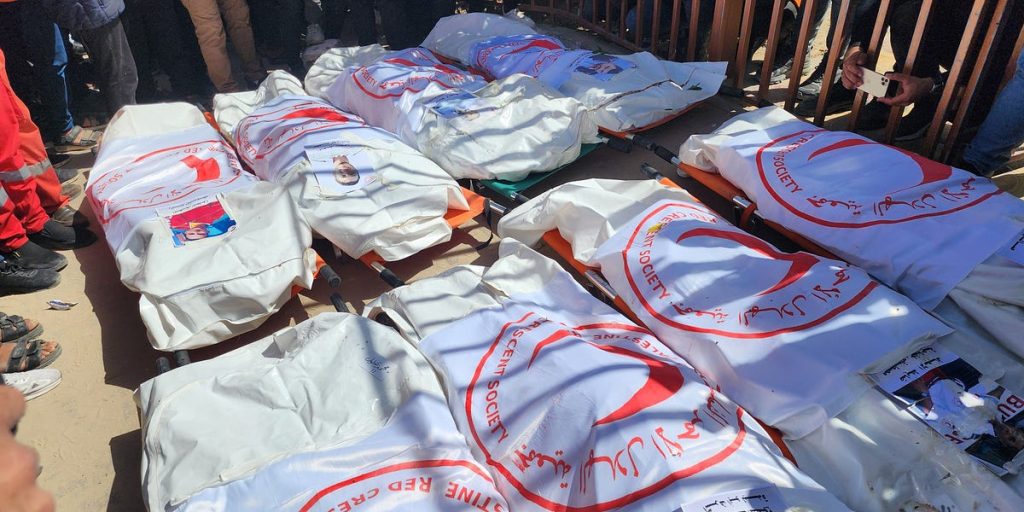Massacre of Palestinian First Responders in Gaza
On March 30, the bodies of more than a dozen Palestinian first responders were unearthed from a mass grave in Rafah, southern Gaza. This horrific event occurred amidst ongoing conflict, recognized as one of the deadliest on journalists and aid personnel in history. Rescue teams found 13 paramedics—eight associated with the Palestinian Red Crescent and five from the Palestinian Civil Defense—along with a United Nations staff member. The total number of emergency and aid workers killed had reached 15, with one paramedic from the Red Crescent still unaccounted for.
The United Nations denounced what it deemed a “concerted policy to destroy Gaza’s healthcare system,” declaring this the single deadliest attack on Red Cross and Red Crescent workers globally since 2017. The Civil Defense labeled it “one of the most heinous massacres” they had ever witnessed.
Survivor Munther Abed recounted the harrowing experience, stating that their ambulance, clearly marked and with lights flashing, was fired upon directly. “Why were we shot at?” he questioned, emphasizing the clear identification of their medical vehicle. During an interview, he described the chaotic scene, noting the profound loss of his colleagues.
On March 30, a video released by the UN showed the paramedics’ bodies being excavated. Jonathan Whittall from OCHA remarked on the grim discovery, stating that the individuals had been methodically executed and buried in a mass grave marked by an emergency light from an ambulance.
Just days prior, following the breakdown of a ceasefire on March 18, Israeli attacks escalated dramatically, resulting in the deaths of over 1,200 Palestinians. Abed described turbulent scenes where his team was ambushed while responding to an earlier airstrike, prompting a desperate attempt to provide aid under fire.
After hours of detainment and mistreatment, Abed was finally released, only to discover that emergency teams had been denied access to assist the wounded for nearly a week. This horrifying delay came as more than 140,000 Palestinians faced forced displacement due to intensified military actions in the region.
As the violence continued, media reports highlighted the plight of civilians, with heartbreaking accounts of families fleeing amidst bombardment. Abed’s experience serves as a haunting reminder of the brutal realities faced by emergency workers in conflict zones, leaving him to question the absence of protection under international humanitarian law.



